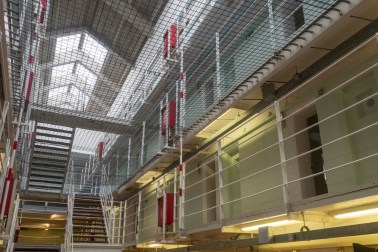An increasing number of British companies are using personality tests to hire staff. Two of the more popular personality tests are the Big Five and the Myers-Briggs Type Indicator (MBTI). There’s just one problem and it’s a rather big one: both of these tests are utterly scientifically useless. And Brits are being hired (or not hired) based on the results of these dubious tests.
Personality tests are a type of zombie falsehood. Despite their lack of scientific validity and numerous papers displaying their many failings, they just won’t die
Of the two, the MBTI appears to be more popular. The assessment comprises 93 forced-choice questions. It evaluates four distinct dichotomies: extraversion versus introversion; sensing versus intuition; thinking versus feeling; and judging versus perceiving. Each dichotomy leads to one of two preferences, and the combination of these preferences determines one of 16 personality types. Each personality type is represented by a unique combination of four letters, such as ISFJ (introverted, sensing, feeling and judging) or ENTP (extroverted, intuitive, thinking, and perceiving). Ostensibly, the results of this test can be used to match individuals with specific personality types to suitable roles.
However, research has found that the ‘the MBTI theory falters on rigorous theoretical criteria in that it lacks agreement with known facts and data, lacks testability, and possesses internal contradictions.’ In short, it’s entirely unscientific, which means it’s entirely unreliable. The same can be, and has been, said about the aforementioned Big 5. Which leads to the question: why are so many employers using personality tests in the hiring process?
Personality tests are a type of zombie falsehood. Despite their lack of scientific validity and numerous papers displaying their many failings, they just won’t die. Part of the reason is the Barnum effect where an individual mistakenly assumes that personality descriptions are exclusively applicable to them, named after the American showman P.T. Barnum, who may or may not have said that a ‘sucker is born every minute’. It’s the same reason why horoscopes are so popular. The Barnum effect allows readers to naively make connections between the vaguest descriptions imaginable (‘today, your stars are aligned’) and events in their own personal lives. In a world of uncertainty, we crave answers, something that resembles concrete knowledge. Personality tests and horoscopes check these boxes.
One of the biggest problems with personality tests involves the fact that, contrary to popular belief, personality is not fixed. A study published by academics at the University of Stirling and the University of Manchester found that personality can change in response to job-specific demands. The results of the study, noted the authors, ‘are consistent with the view that personality changes as a function of contextual and environmental factors.’ For example, a person who was unemployed three months ago but finds himself employed today may be much more agreeable, conscientious, and open to new experiences than he was in August.
In fact, a 2021 study published in the Journal of Personality and Social Psychology found that the environments we select (the basement or the bar?) can alter our ‘psychological characteristics in the moment and over time’. When individuals frequent social places like cafes and concerts, they have a tendency to exhibit greater levels of open-mindedness and extraversion in comparison to when they are at home. This makes sense. We are, after all, social animals in need of a tribe – or at least we used to be.
Earlier this year, a fascinating Scientific American article discussed something called intraindividual variability, or IIV. In short, an increasing number of studies are showing how our personalities can change throughout the day. Someone could be overly neurotic at noon but wholly agreeable by four o’clock. ‘Such oscillations in daily feelings and behaviour,’ according to the Scientific American article, ‘are, in fact, so great that they rival or even exceed the differences in personality traits such as extroversion or conscientiousness that can be measured between one person and another.’
In a perfect world, companies would refrain from using personality tests in the hiring process. However, if you happen to be in possession of eyes and a few functioning neurons, you know that this world is far from perfect. If a company insists on using personality tests, then employers should ensure that they are combined with other assessment tools. To enhance the predictive accuracy of the Big 5 and the MBTI, as researchers at Harvard have noted, these tests should be used in conjunction with other measures that have higher levels of scientific validity, such as cognitive ability assessments or integrity evaluations.







Comments